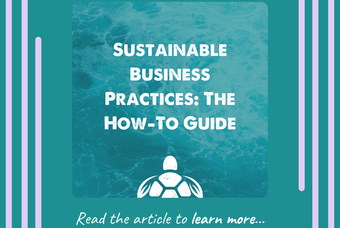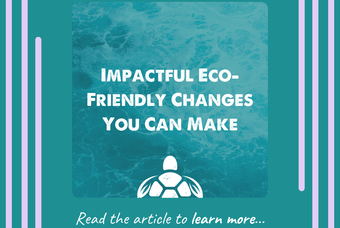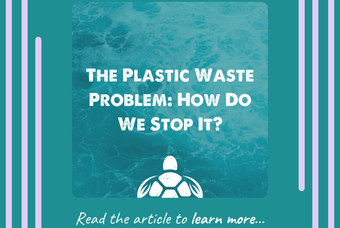The News-Hub/ Articles
Back to Articles
Recommended Articles
Sustainable Business Practices: The How-To Guide
Owners of up-and-coming businesses may be well-served to follow sustainable business practices. The planet needs more businesses that are not so harmful to the ecosystem, not to mention governments worldwide are tamping down on non-ecofriendliness. Furthermore, as the Guardian can confirm, sustainable businesses do better financially.
Of course, following sustainable business practices is no walk in the park. It tends to require a significant resource investment and carries a measure of risk. To help you make informed decisions, Purple Turtle Co. explains the how-to’s of sustainable business practices as well as the most important considerations
to make beforehand:
What are sustainable business practices?
Sustainable business practices allow companies to reduce their negative eco-impact while still turning a profit. All businesses have a certain impact on the people, economy, and environment. Sustainable businesses benefit or have a net neutral impact on the people, economy, and environment. Non-
sustainable businesses have a massive carbon footprint and don’t always follow green initiatives.
According to Harvard Business Review, sustainable business practices are a firm’s most dependable route to financial performance. Aligning your business practices to the planet’s best interest, essentially, helps create a healthier ecosystem, which feeds back into your business.
Create a sustainability framework for your business
To get started with sustainable business practices, it may be a good idea to create a sustainable framework for your business. This allows you to define your green goals, create sustainability plans, prioritize green initiatives, enable green reporting, and track changes. A sustainability framework is much like a business plan – it’s a document that defines your sustainability strategy and outlines sustainability KPIs for your niche. Without a sustainability framework, your efforts may be disorganized, non-uniform, and may not bear fruit.
Examples of green business practices:
Your sustainability framework will help determine the ideal way for your business to follow eco-friendly practices. Some examples of common sustainable best practices are emphasizing eco-friendliness in the company culture, making a green office, using green products and services, reducing your carbon footprint, using green energy, and utilizing green technology.
A high-impact way to reduce paper waste is by digitizing your paper records and other documents. This also makes it easy to organize and share your files. When digitizing paper records, instead of using many files, you can use a PDF merging tool to keep all your documents in one file. This would cut the time it’d take to find a document. Once you combine PDF files, you can move PDF pages to get their records in the right order. Be sure to click for more info.
Invest time and energy in marketing:
Marketing your sustainable business practices is incredibly important. It will bring you to the attention of stakeholders who care about eco-friendliness, whether that’s customers, investors, or potential employees. It’ll allow you to build up a green image, become a part of a green supply chain, and, eventually, boost revenues. When marketing, be sure to highlight the green benefits of your products or services as well as your business practices. You can utilize a mix of offline and online marketing strategies.
Sustainability is no walk in the park
Incorporating sustainability won’t be easy.Many would-be-green companies encounter similar challenges – difficulty creating green processes, failure to locate green partners (like suppliers), failure to find demand for eco-friendly products in the market, and money issues. Sustainability is still a developing concept, meaning you may need to research and build eco-friendly processes from scratch, without expert help. Be prepared to invest time learning about sustainability, auditing your business processes, and rebuilding processes.
Starting a sustainable business is a worthwhile endeavor
Starting a business – especially if you’re going the extra mile and making it eco-friendly – can be tough. The reward – a stable, profitable, and resilient business – will make the effort worth it, though. Don’t let your lack of business experience, if applicable, stop you. People learn best by doing. Remember, the most successful entrepreneurs have been where you are. Just follow in their footsteps and keep at it.
Conclusion
Rome wasn’t built in a day – and neither are sustainable businesses. It will take time to get green processes established. It may be a good idea to start small and slowly, but surely, refine your processes over time. This would limit the risk, make the investment more bearable, and lead to lasting success.
Image via Unsplash
Empty content. Please select category to preview











0 comments. Write a comment